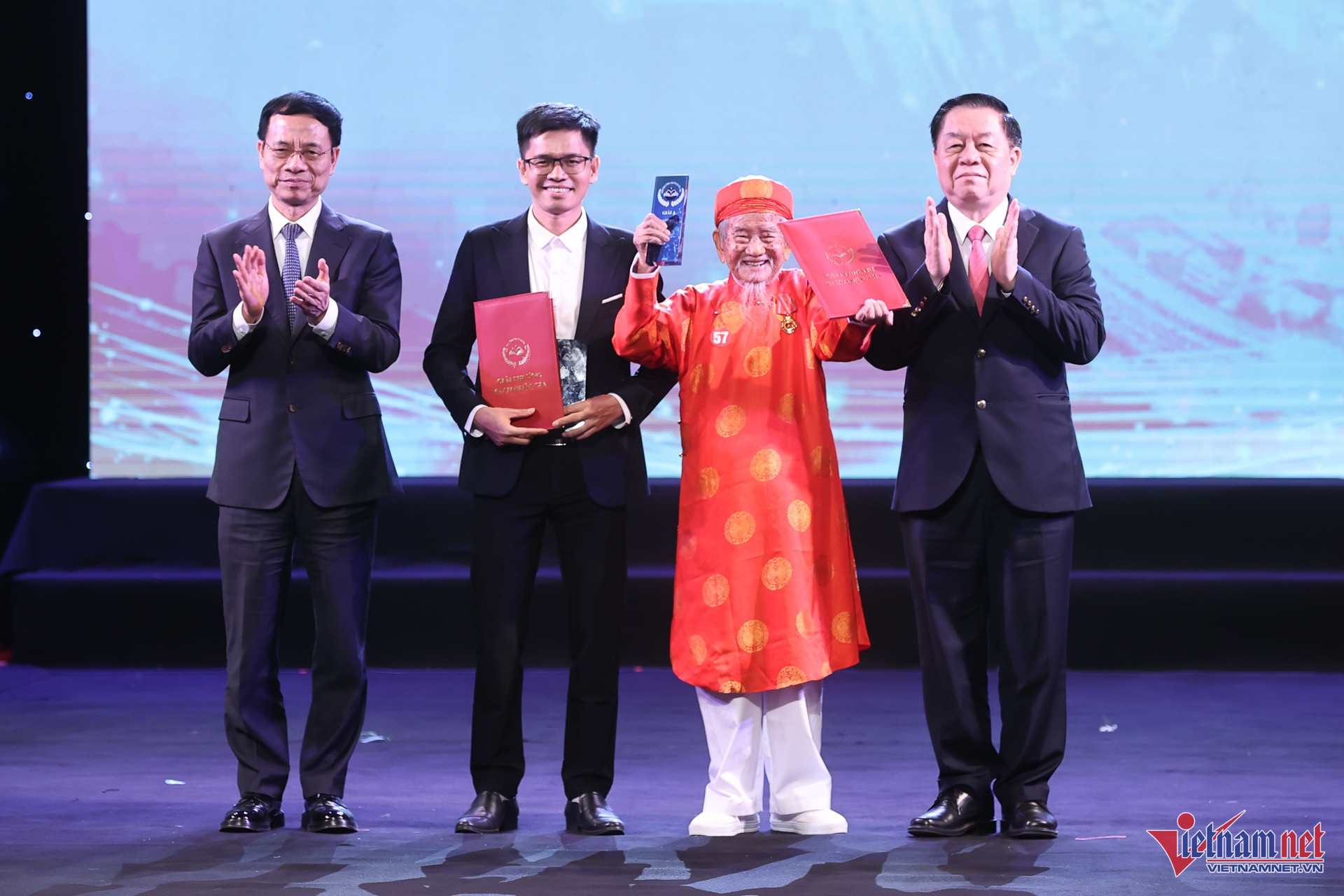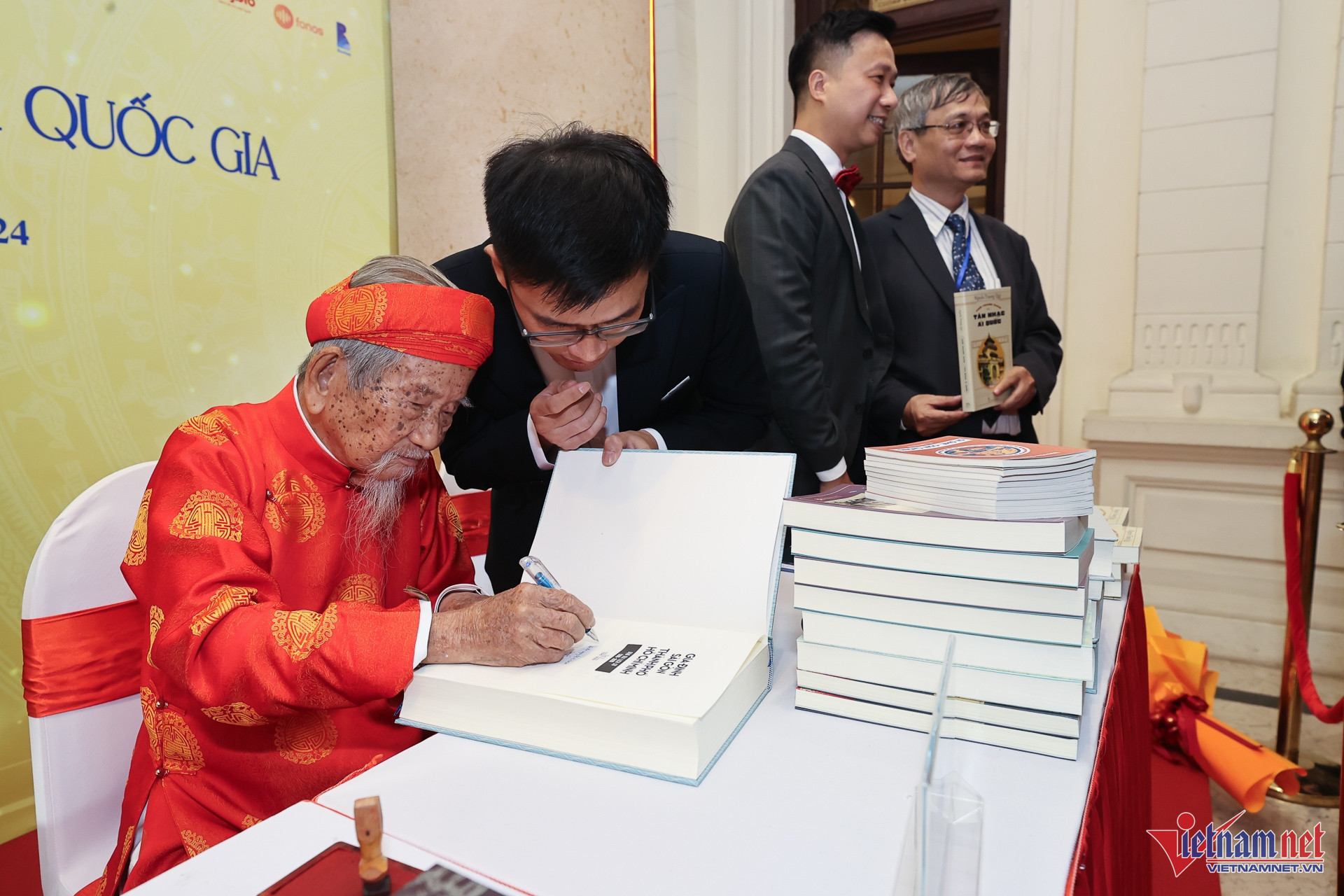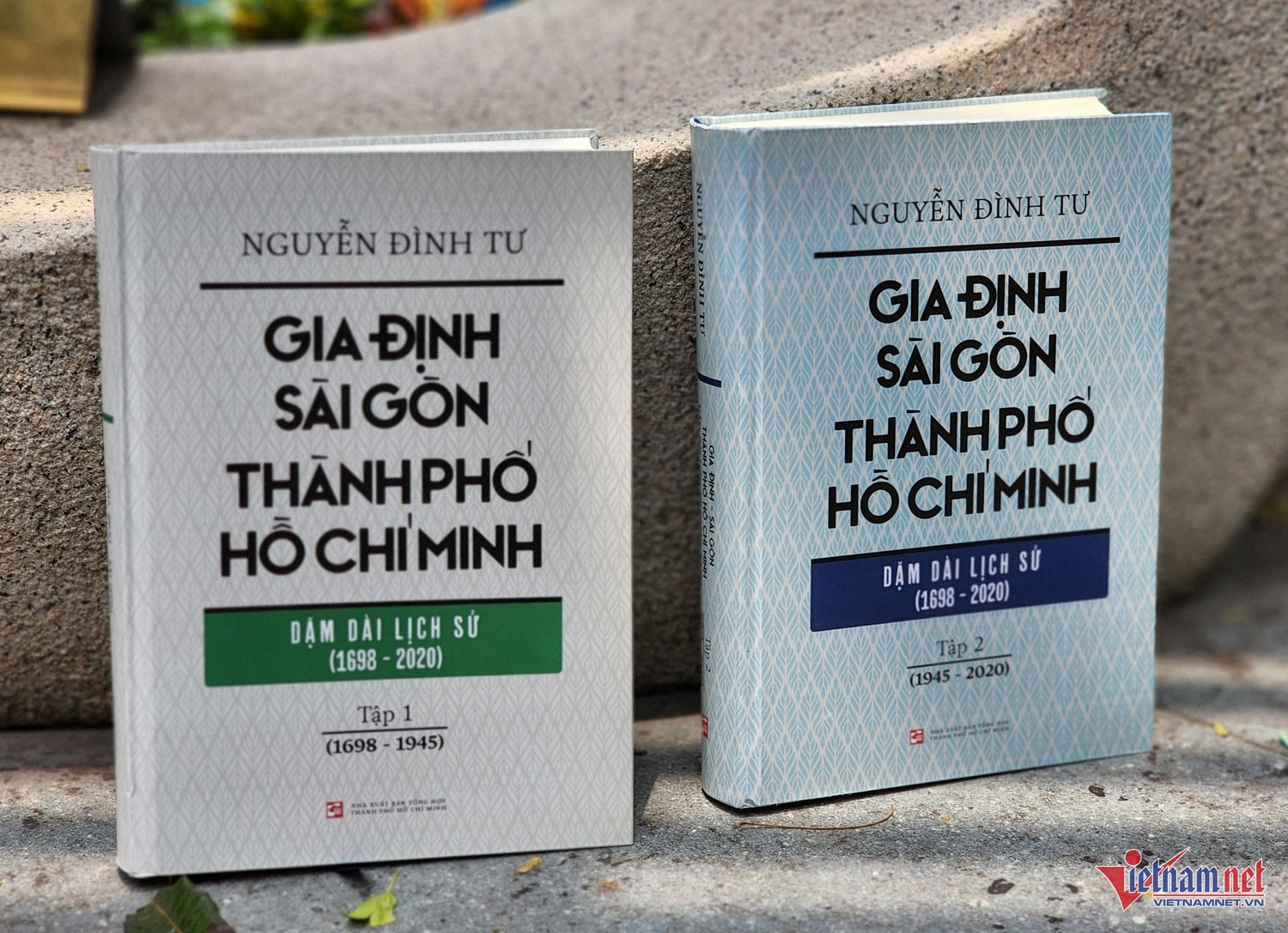
After two decades of meticulous work, 104-year-old historian Nguyen Dinh Tu has been awarded the prestigious A Prize at the 7th National Book Awards for his monumental work Gia Dinh - Sai Gon - Ho Chi Minh City: A Long History (1698–2020).
This marks his second A Prize, following his 2018 win for The French Colonial Regime in Southern Vietnam (1859–1954).
Nguyen Dinh Tu expressed his profound joy upon receiving the honor. Despite his age, he traveled by train from Ho Chi Minh City to Hanoi to attend the award ceremony.
"Winning this award brings me immense happiness," said Tu. "My work, done day and night under simple, modest conditions without any collaborators, has been recognized as a valuable contribution to Vietnamese historiography. I couldn’t be more thrilled."
Tu recounted the challenges of single-handedly writing his books. During the initial phase, he worked against tight deadlines leading up to Ho Chi Minh City’s 300th anniversary celebrations.
“There were no comprehensive histories of this region at the time,” he noted. Writing involved painstakingly gathering materials, handwriting drafts, and using an outdated typewriter for submission.
In later years, as time pressures eased, Tu was able to collect richer and more extensive sources, enabling him to craft a more comprehensive work. “This time, I was fully satisfied with the depth and completeness of my materials,” he said.
Tu highlighted two key issues addressed in his book that aim to dispel misconceptions and foster understanding between Vietnam and Cambodia:
Tu explained that Vietnamese settlers arrived in Cambodia with specific historical justifications. “Our people didn’t move there arbitrarily,” he said, tracing the origins of these migrations to requests by Cambodian kings for Vietnamese assistance in repelling foreign invaders.
Tu detailed how Cambodian rulers voluntarily ceded lands such as Ha Tien (modern-day Kien Giang, Ca Mau, and parts of Soc Trang) in recognition of Vietnamese support. These transfers were recorded in Vietnamese, Cambodian, and French historical records, countering unfounded claims.
“I hope readers will understand these pivotal historical moments that shaped the relationship between our nations. Instead of reopening old wounds carelessly, we should focus on building mutual happiness and cooperation,” he urged.
Even at 104, Tu maintains a disciplined routine to stay healthy and productive. “I exercise, eat well, and write every day. Research is my spiritual sustenance - it’s as essential to me as food,” he said. His workdays often stretch up to eight hours, driven by an intense passion for historical inquiry.
Tu lamented the decline of reading habits among youth in favor of mobile phones. “Books offer depth and enduring knowledge that phones cannot,” he said, encouraging young people to embrace reading as a lifelong source of learning and intellectual growth.
“Reading is learning, even if you’re no longer in school. Books are the most complete and comprehensive teachers, imparting wisdom across all fields.”



Tinh Le - Han Triet